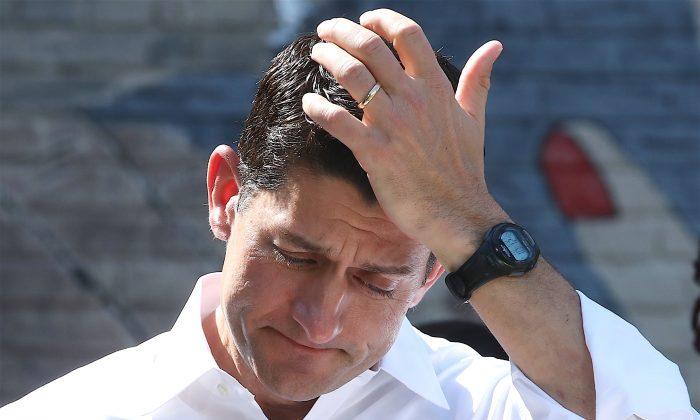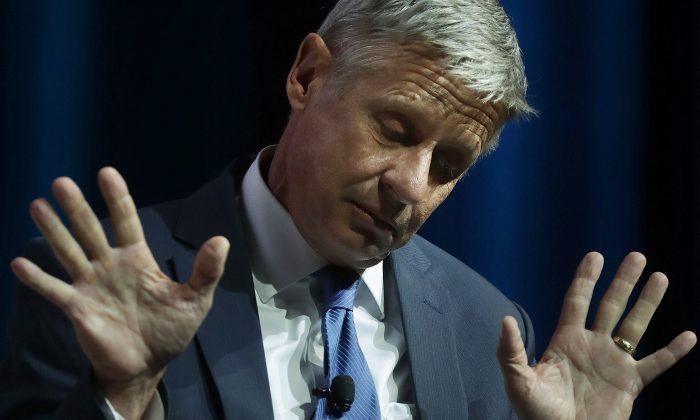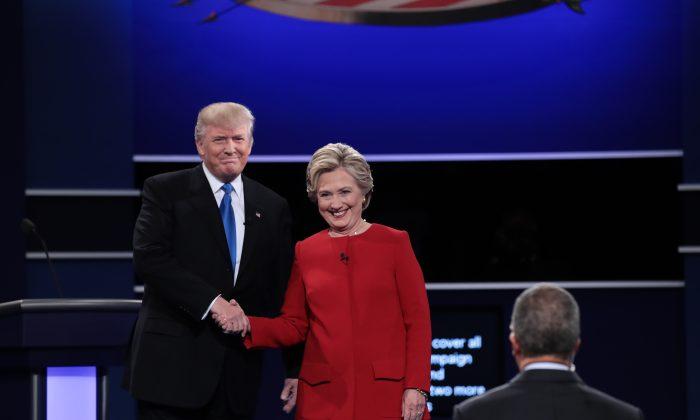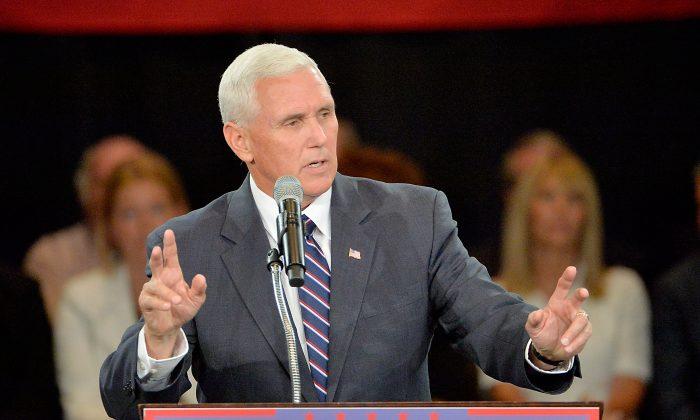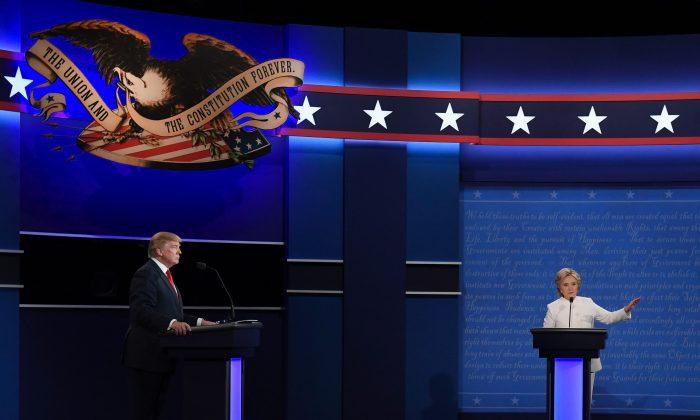Speaker of the House Paul Ryan (R-Wis.) is in the difficult position of leading and unifying the Republican Party, while being one of the most vocal opponents to the party’s presidential presumptive nominee, Donald Trump.
In an NBC interview with Chuck Todd for “Meet the Press”—which airs on Sunday, June 19—Ryan says that Republicans should follow their “conscience” when it comes to the question of endorsing Donald Trump.
“The last thing I would do is tell anybody to do something that’s contrary to their conscience,” he said.
But Ryan did say that he feels he needs to support the nominee as Speaker of the House in order to get a Republican President elected in November.
“I feel as a responsibility, institutionally, as the Speaker of the House, that I should not be leading some chasm in the middle of our party. Because you know what I know that‘ll do? That’ll definitely knock us out of the White House,” he said.
The following are the milestones of Ryan’s reactions in public to Donald Trump over the last seven months, which culminated in the endorsement of Trump. Ryan, despite his criticisms, has maintained his position.
While Ryan’s support for Donald Trump has evolved from denouncement to endorsement, he has made it clear that the tension between institutional responsibility and personal morality has remained a constant.
Nov. 12 - Does Not Support Trump’s Proposal for Mass Deportations
Paul Ryan was sworn into the position of Speaker of the House on Oct. 29, making him the most powerful member of the Republican party in office. Two weeks later, on Nov. 11, Donald Trump proposed deporting 11 million undocumented immigrants out of the country using a “deportation force.”
Speaker Ryan, in his interview with Scott Pelley on “60 Minutes” that aired on Nov. 15, broke with Trump over the proposal, suggesting that it would never pass through the House.
Scott Pelley: I take it you don’t advocate rounding up 11 million illegal immigrants and deporting them.
Paul Ryan: I do not.
Scott Pelley: That’s not going to happen while you’re speaker of the House.
Paul Ryan: I can’t imagine how it could happen. So no.
Dec. 8 - Condemns Trump’s Proposed Muslim Ban After Paris Terror Attack
Donald Trump proposed a temporary ban on Muslims entering the United States in the wake of the Paris terrorist attack. Trump was not yet the presumptive nominee, nor had the primary season begun. He had, however, at that point been leading in the polls for four months.
One of the first Republican dissenters of the proposal was Ryan, who noted during a press conference on Dec. 8—only one day after Trump made the proposal—that he does not normally comment on presidential races, but would make an exception in this case.
“This is not conservatism,” Ryan said. “What was proposed yesterday is not what this party stands for, and more importantly, not what our country stands for.”
March 1 - Condemns Trump’s Support From KKK
On Super Tuesday, March 1, Ryan reacted to an interview with Trump in which the candidate refused to disavow the support of former KKK Grand Wizard David Duke.
“This is the kind of moment where we should be having a serious debate about the policies needed to restore the American ideal,” Ryan told reporters at a press conference. “Instead, the conversation over the last few days has been over white supremacy groups.”
Ryan didn’t mention Trump’s name, but decried preying on people’s prejudices and called for a rejection of any “group or cause that is built on bigotry.”
“If a person wants to be the nominee of the party, there can be no evasion and no games. They must reject any group or cause that is built on bigotry.
“This party does not prey on people’s prejudices. We appeal to their highest ideals. This is the party of Lincoln. We believe all people are created equal in the eyes of God and our government,” Ryan added. “This is fundamental, and if someone wants to be our nominee, they have to understand this.”
May 6 - Says He’s Not Ready to Support Trump
Donald Trump went from being one of the Republican candidates to become the presumptive nominee of the Republican party after winning the state primary in Indiana on March 4, effectively putting Ted Cruz and John Kasich out of the race.
However, Ryan was not ready to support Trump at the time.
“Well, to be perfectly candid with you, I’m just not ready to do that at this point,” Ryan told CNN’s Jake Tapper in an interview when asked if he would support Trump. “I’m not there right now. And I hope to, though, and I want to.”
“I think what a lot of Republicans want to see is that we have a standard-bearer that bears our standards,” he said stressing unity.
“There are lots of questions that conservatives, I think, are gonna want answers to, myself included. I want to be a part of this unifying process. I want to help to unify this party.”
A week later, Ryan met with Trump, and said in a press conference on May 12 he felt encouraged by the meeting, but did not endorse him.
June 2 - Endorses Trump
About one month after saying he wasn’t ready to support Trump, Ryan wrote an op-ed in his local Wisconsin paper where he endorsed the presumptive nominee. In the endorsement, he noted his differences with Trump but stated that he would work better with Trump than with Democratic nominee Hillary Clinton.
“It’s no secret that he and I have our differences. I won’t pretend otherwise. And when I feel the need to, I'll continue to speak my mind. But the reality is, on the issues that make up our agenda, we have more common ground than disagreement.
For me, it’s a question of how to move ahead on the ideas that I—and my House colleagues—have invested so much in through the years. It’s not just a choice of two people, but of two visions for America. And House Republicans are helping shape that Republican vision by offering a bold policy agenda, by offering a better way ahead.
Donald Trump can help us make it a reality.”
June 7 - Condemns Remarks about Judge Curiel
The same day that Ryan endorsed Trump, the presumptive nominee made remarks about the judge presiding over two class action lawsuits against Trump University. Trump argued that Judge Curiel had “an inherent conflict of interest” because he was “Mexican.”
Ryan, at first, said the comments “came out of left field” and then later, in a press conference, said that it was the “textbook definition of a racist comment.”
“Claiming a person can’t do their job because of their race is sort of like the textbook definition of a racist comment,” Ryan said, maintaining that this was not going to affect his endorsement of Trump.
“I think if we go into the fall as a divided party, we are doomed to lose,” Ryan said.
June 14 - Condemns Muslim Ban After Orlando Attack
Following the terror attack in a nightclub in Orlando, Florida, that killed 49 people, Trump renewed his proposal to ban all Muslim immigrants from entering the United States. Speaker Ryan reiterated his position opposing the proposed ban.
“I do not think a Muslim ban is in our country’s interest,” Ryan told reporters at a press conference. “I do not think it is reflective of our principles, not just as a party, but as a country.”
Instead, Ryan called for “a security test, not a religious test” for immigrants.
